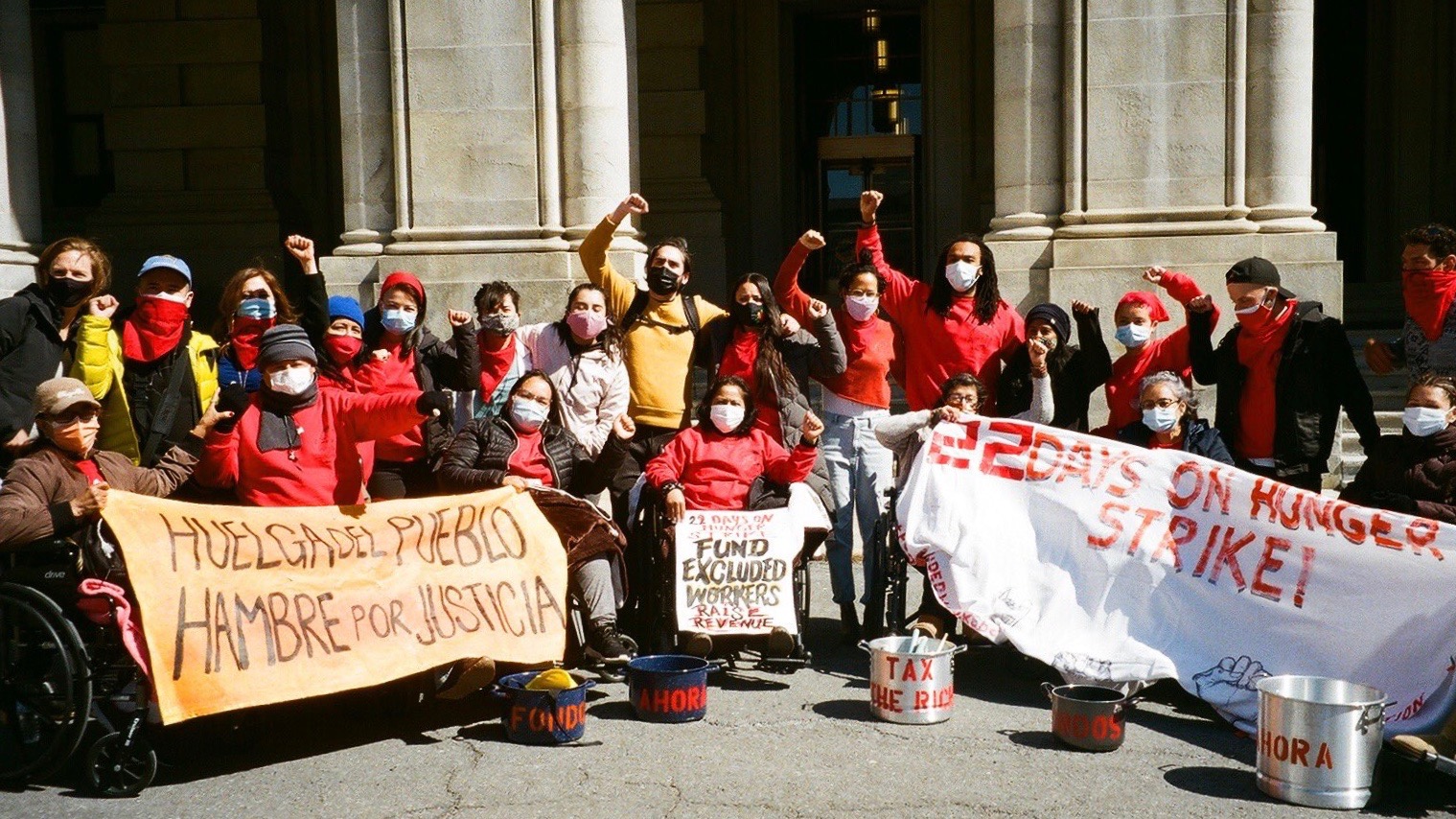After more than three weeks on hunger strike, undocumented workers secured a significant victory with a pandemic budget allocation from the US State of New York. On Wednesday, April 7, a day after the State government announced USD 2.1 billion of funds in assistance, dozens of undocumented workers on hunger strike broke their fast in celebration. Along with their families and supporters, they held a victory rally at New York’s Washington Square Park, where they officially broke their fast
The workers were on hunger strike for 23 days in total, fighting against the discriminatory policy regarding the distribution of aid and assistance to those who lost their jobs during the COVID-19 pandemic. The hunger strike began on March 16 and was known as the “Fast for the Forgotten.”
According to reports, more than 70 workers participated in the strike, with many more supporters holding periodic demonstrations and rallies across New York City. The strike was led by the Fund Excluded Workers campaign, a coalition of more than 100 organizations across New York, which has been demanding assistance for thousands of workers who were left out in the federal and State stimulus plans and unemployment assistance due to their immigration status.
The newly announced funds will be part of the USD 212 billion annual budget that the New York State legislature is set to pass on Thursday. New York will be the second State to extend aid to undocumented workers. California passed a similar bill in February, but with far lower one-time payments of USD 600.
The new plan introduces a tiered system of assistance, whereby undocumented workers would have to prove that they lost their jobs due to the pandemic and can receive one-time payments of up to USD 15,600. Those failing to furnish proof of pandemic-induced job loss could have their assistance significantly limited to USD 3,200.
While the funds were welcomed by the strikers, the campaign maintains that their struggle will continue. Workers have been demanding an assistance of USD 3.5 billion from the State, and fear that despite the historic victory many undocumented workers will be left out.
“The State Senate and the Assembly have put USD 2.1 billion on the table, which is a start, but not enough,” said Bianca Guerrero, coordinator of the Fund Excluded Workers’ campaign. “We need a USD 3.5 billion fund to make sure that what these workers have received is on par with what other unemployed New Yorkers have received during the pandemic.”
Julissa Bisono, the co-associate director of organizing at Make the Road New York, emphasized how important the relief funds are to the workers. She, however, added that a lot of the “requirements [are] going to leave folks out” and that the “money is only going to look good on paper,” reported NYU News.
Some of the required documentation for receiving the funds are letters from past employers and individual tax identification numbers (ITIN, which are used by non-residents and undocumented workers to pay taxes), among others. The groups are demanding that alternative forms of verification be used to disburse aid. They are expected to continue their struggle to hike the fund amount to what was originally demanded.
In the meanwhile, inspired by the developments in New York, on Wednesday, 21 undocumented workers in the neighboring State of New Jersey embarked on a hunger strike of their own, raising similar demands to the State government. New Jersey’s legislature has received proposals and bills to extend aid along the lines of California or New York, but none have moved beyond the committee-stage of the legislative process.





